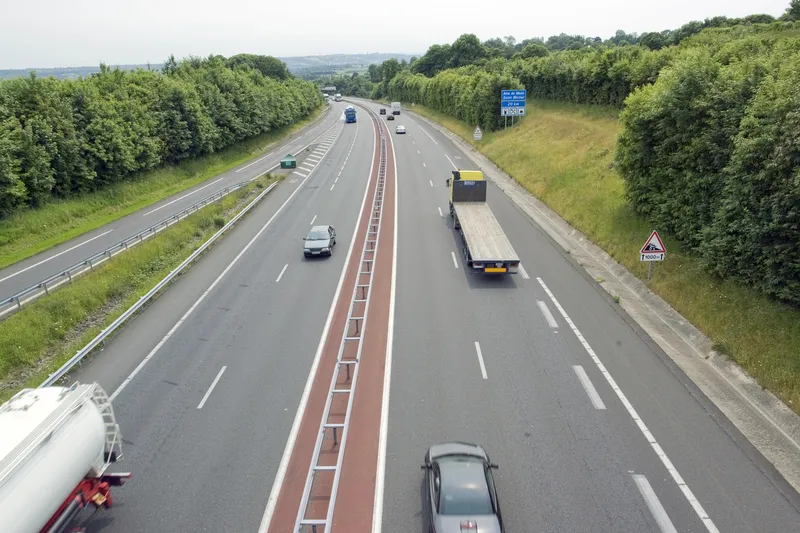Set to cost over €100 billion to implement in full, Moscow region’s new transport strategy until 2020 aims to develop and popularise public transport, strengthen connections between districts via transverse highways, optimise cargo traffic and increase safety.
The strategy, devised by the Research and Design Institute of Moscow City Master Plan (NIiPI Genplan) after a request by the Moscow Transport Hub's Directorate, if successfully implemented, is predicted to see an increase in annual passengers carried by public transport from 7.26 billion to 9.4 billion people, and from 73 million to 100 million people per year on long-distance routes. Freight rail traffic is also forecasted to grow from 80 million to 115 million tonnes per year.
Meanwhile, average travel time should, according to the strategy, decrease from 68 to 52 minutes, and public transport congestion during rush hours should go down from 26% to 17%. Transport accident rate should lower from 1.7 to 1.3 casualties per 10,000 people. Delay rates in freight motor transport operations are anticipated to decline from 24% to 15%. Polluting substance emissions should also be cut from 54kg to 19kg per
Aggregate financing under the intended transport strategy scenario totals €148.1 billion (RUB 6.55 trillion), and €104.27 billion (RUB 4.61 trillion) under the conservative scenario. Around €52.02 billion (RUB 2.3 trillion) should come from the Moscow city budget, €24.88 billion (RUB 1.1 trillion) from non-budgetary sources, €16.46 billion (RUB 728 billion) from the federal budget, and €2.26 billion (RUB 100 billion) from the Moscow region's budget.
Set to cost over €100 billion to implement in full, Moscow region’s new transport strategy until 2020 aims to develop and popularise public transport, strengthen connections between districts via transverse highways, optimise cargo traffic and increase safety.
The strategy, devised by the Research and Design Institute of Moscow City Master Plan (NIiPI Genplan) after a request by the Moscow Transport Hub's Directorate, if successfully implemented, is predicted to see an increase in annual passengers carried by public transport from 7.26 billion to 9.4 billion people, and from 73 million to 100 million people per year on long-distance routes. Freight rail traffic is also forecasted to grow from 80 million to 115 million tonnes per year.
Meanwhile, average travel time should, according to the strategy, decrease from 68 to 52 minutes, and public transport congestion during rush hours should go down from 26% to 17%. Transport accident rate should lower from 1.7 to 1.3 casualties per 10,000 people. Delay rates in freight motor transport operations are anticipated to decline from 24% to 15%. Polluting substance emissions should also be cut from 54kg to 19kg per capita.
Aggregate financing under the intended transport strategy scenario totals €148.1 billion (RUB 6.55 trillion), and €104.27 billion (RUB 4.61 trillion) under the conservative scenario. Around €52.02 billion (RUB 2.3 trillion) should come from the Moscow city budget, €24.88 billion (RUB 1.1 trillion) from non-budgetary sources, €16.46 billion (RUB 728 billion) from the federal budget, and €2.26 billion (RUB 100 billion) from the Moscow region's budget.










